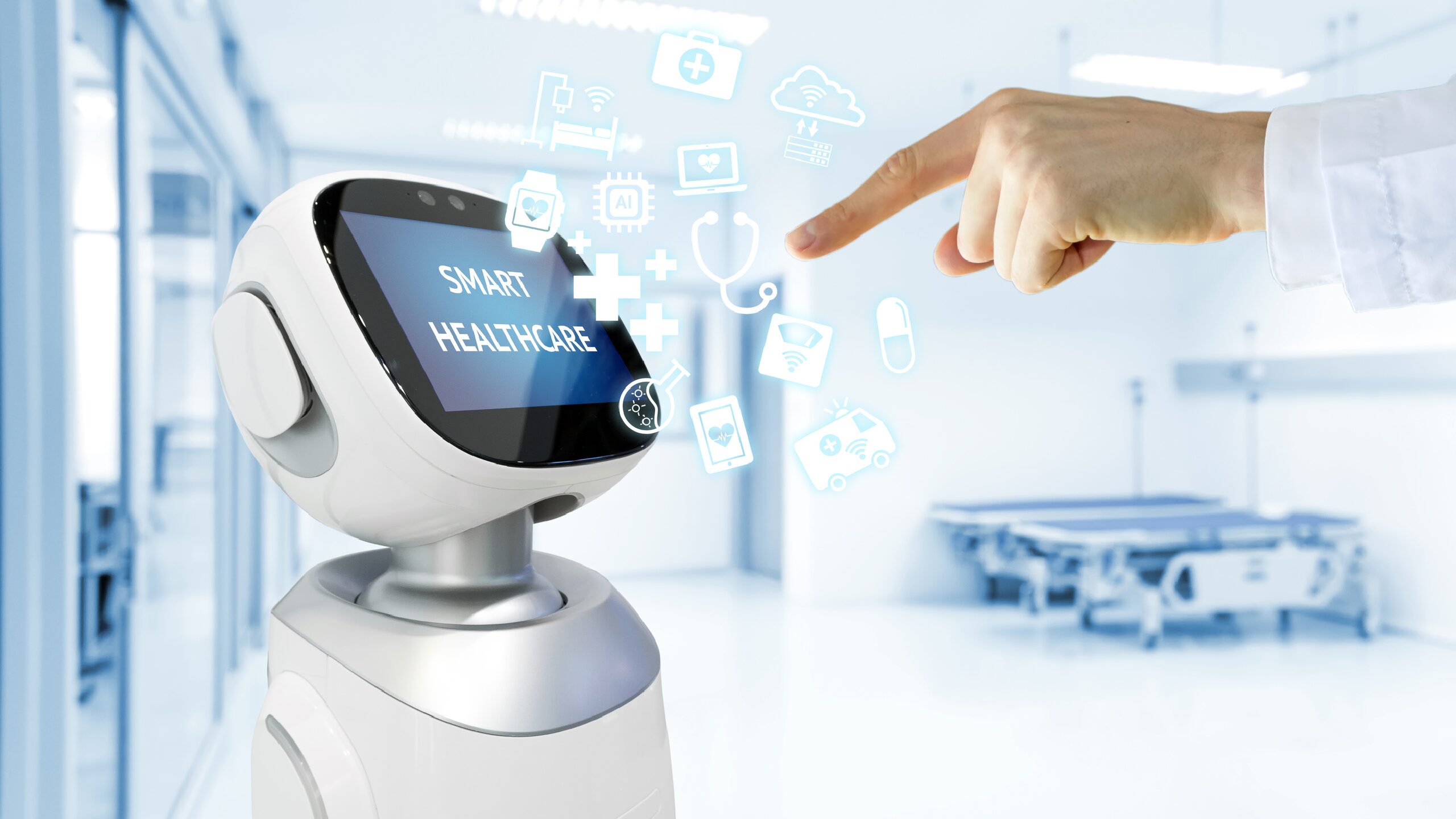Table of Contents
ToggleMedically Reviewed by Dr. Hanif Chatur
Key Takeaways
- Proactive Health Management with AI: AI technology in healthcare offers enhanced diagnostic accuracy, individualized treatments, and the ability to pivot from a reactive to a proactive healthcare model. This transformation has the potential to drastically cut down healthcare costs and provide vital services in underserved regions.
- AI’s Role in Diagnostics: While AI algorithms enhance decision-making by identifying patterns in vast datasets, they are designed to assist, not replace doctors. Human expertise and judgment remain critical in the diagnostic process, ensuring that AI insights are contextualized and accurate.
- Challenges in AI Integration: As AI reshapes healthcare, challenges like ensuring patient safety, addressing data security concerns, and understanding the impact on healthcare professionals must be tackled. Addressing these challenges is essential for the successful and holistic integration of AI into healthcare.
Learn more with MarkiTech...
The healthcare industry is beginning to wake up to the power that AI technology can bring to diagnostic accuracy and personalized medication to patients. AI-powered tools offer a proactive healthcare model, reducing costs, and extending services to underserved regions. However, the integration of AI into healthcare services comes with challenges such as patient safety, data security, and potential job loss for industry professionals. Let’s explore the potential of AI in healthcare and the challenges associated with its implementation in diagnostics.
Importance of AI in Healthcare
AI is becoming an increasingly vital component in every aspect of life, and its contribution to the healthcare sector is already quite remarkable. AI applications enhance diagnostic accuracy, provide individualized treatments through precision medicine models and offer medical imaging analysis that helps in identifying and documenting health issues. Thanks to AI, it is now possible to generate information patterns from various sets of medical data that are proving to be quite crucial for accurate and fast diagnosis of diseases. This type of technology will go a long way in providing a proactive healthcare model that will drastically cut down healthcare costs.
AI and the Glass Ball of Diagnosis
AI is playing a crucial role in healthcare diagnostics. AI algorithms can help doctors make better decisions by working through vast amounts of data and identifying patterns that can, at times, be hard for the human eye to spot. This obviously allows for greater accuracy in diagnosis. Additionally, AI algorithms can be used to get insights into future health concerns, such as heart disease or cancer. However, we all know now that “with great power comes great responsibility”! So, it is important to recognise that AI is only meant to assist doctors in diagnosis, not replace them. It still remains incumbent on the doctors to apply their expertise and wisdom in assessing the insights and confirming or amending the recommendations provided by the system.
Potential Impact of AI Implementation – every $$$ saved…
… can be allocated more productively. It is estimated that by 2026, AI applications could cut annual US healthcare costs by a whopping $150 billion. This may become possible thanks in large part to AI’s ability to help the healthcare model pivot from reactive to proactive, focusing on health management rather than disease treatment. By identifying potential health risks early on or even before symptoms have actually manifested themselves, hospitalizations and doctor visits could be reduced while personalized treatments could be administered based on an individual’s DNA, medical history, and their family’s medical history. This shift to AI-powered tools has the potential to revolutionize healthcare services and is relevant in underserved regions where healthcare infrastructure is lacking. I know it sounds a bit like “Minority Report”, but the model is not designed to be completely autonomous to merit a movie script of its own; human professional oversight will always be present.
Challenges in Integrating AI in Diagnostics
While the concept of AI-powered healthcare is exciting, there are several challenges in integrating AI in diagnostics. One of the biggest hurdles is the need for substantial independent validation to ensure patient safety and efficacy. There are also concerns around data security and privacy, which are critical in healthcare. Additionally, there is the issue of how AI implementation impacts healthcare professionals. While AI can assist with diagnosis and treatment planning, clinicians still draw their conclusions by considering context and applying their wisdom, which AI systems currently lack. These challenges must be addressed before AI-enabled tools can be widely adopted in the healthcare sector.
Conclusion
In a nutshell, AI implementation in healthcare diagnostics provides revolutionary opportunities for proactive health management, personalized treatments, and accurate diagnoses. Although AI systems can deliver accurate insights, human expertise still holds value in the final decision-making process. Substantial independent validation and data security concerns remain a challenge in integrating AI. Nevertheless, the potential impact of AI on extending healthcare services in underserved regions and reducing healthcare costs sets the stage for a paradigm shift in healthcare delivery.
Book a free consultation with us!
MarkiTech has various subsidiaries with products and services targeted towards digital healthcare and telehealth/telemedicine and virtual clinic with laser focus on helping seniors age in place and help their caregivers.
Sensights.ai is a company focused on remote patient monitoring and aging solutions, which utilizes artificial intelligence to track the health of patients and keep a round-the-clock connection between caregivers and patients.
As well, Veyetals uses rPPG and AI modeling algorithms to capture the light reflected by the blood vessels under a patient’s skin to measure vitals anytime, anywhere.
Lastly, we are now launched our latest Mental Health AI Scribe tool called CliniScripts.com


